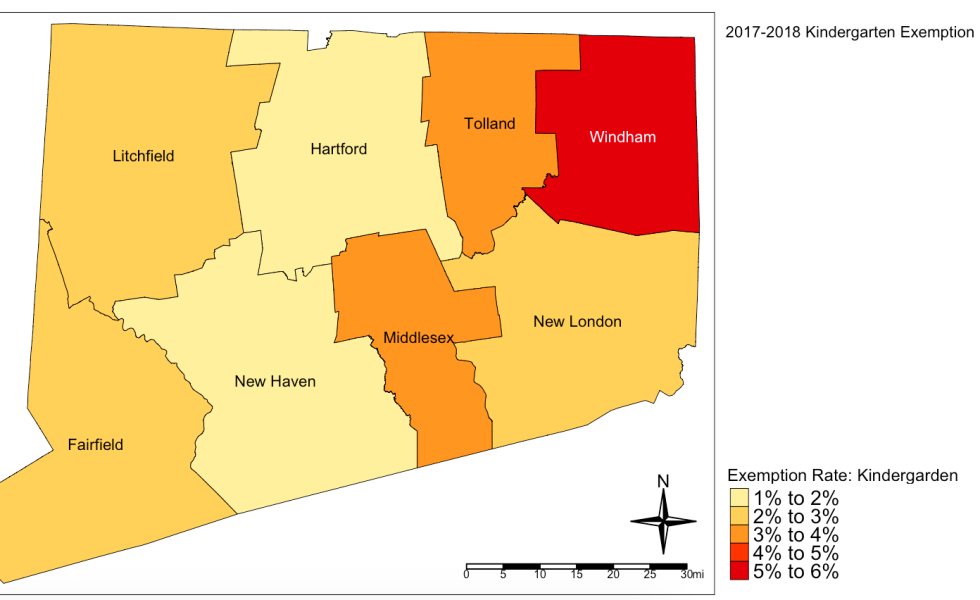Your Obsession with Data

As the pandemic continues, one of the questions that I see asked by people all over the country (and the world) is very much, “Where is my data?” For example, in one county in the US, people are clamoring that data be released at the ZIP code level. They want to know where the “hot spots” of COVID-19 are so that they can… Well, they don’t really say what they will do with that information.
The state where this county is located is already under a general quarantine order. People are to stay home unless they are essential personnel in the pandemic response or they perform some sort of essential work function for the public like preparing food, fixing cars or restocking supplies. Everyone else should stay home. So what would change if the average person — who should be home — knows how many cases there are in this or that ZIP code? What changes if they know that they are in or outside of a hot spot?
Some of the same people calling for those data say that they are “high risk” and want to know if it is safe for them in their geographic area. Again, if the order is to stay inside, then what would it change if they were in a hot spot or not? I couldn’t wrap my head around this until someone explained it to me.
Human beings like to think that they have control over stuff. Stuff just happens at random sometimes. Back in October of 2019, an animal was infected with coronavirus. A few of the viruses it was carrying landed on a human being somehow. A few of those had a genetic mutation that allowed them to enter the human cells and replicate. Then thousands of those burst out from this person’s mouth and nose and infected a second person. Two became four. Four became eight… And here we are today.
There is absolutely nothing that any mortal could have done to prevent that genetic accident. Maybe if stronger measures against “wet markets” were in place in China and other parts of the world the “jump” or “spillover” to humans would have been prevented. Maybe. Or maybe if could have been delayed. Maybe.
Now, as was the case with the millions of constitutional scholars that popped up during the impeachment trial, we have millions of epidemiologists who think that they can somehow control their lives and their environment — or glean some insight in to the epidemic — by knowing how many cases there are in a given geographic area. Or they measure their individual risk by looking at who is getting sick and thinking that they are not “those people.” It’s all about control, none of which we really feel like we have if all we do is stay home and play on the internet all day.
So I get it. You want data and you want to analyze it and interpret it your way without really having much training in it because you feel out of control and you want to have some control. Fortunately for us, and unfortunately for you, you’re not getting more than you need to know to be safe. You’re just going to have to come to terms with that and wash your hands and stay home while those of us with years of experience in handling these things do it for you.
That’s how these things work. Your pipe freezes and breaks, so you call the plumber. You don’t stand over the shoulder of the plumber and ask them to give you the data in their heads while they do their work, do you? Do you?
You do? Then we have nothing to talk about.
You don’t? Good. Let the professionals do their work. Have a little faith once in a while.
Now, if you’ll excuse me, I’m heading back once more into the fray.
Zip code or more granular data is invaluable for public health professionals to ascertain if there is some sort of leak present in the currently implemented controls.
As I have no part in those processes, I’m content with the global, state and county level data that I do have access to.
Still, with all that is going on and our inept human, god-king emperor leader and assorted idiocies exhibited by the public, I strongly feel that our ancestors made a bad move stepping off of the Battlestar. 😉
LikeLike
Well, to refer to our ancestors, I thought you might find my book, Evolutionary Aspects of Disease Avoidance that is a survey of both animal behavior regarding perception of disease in conspecifics but also avoidance as well as a review of human societies’ methods of disease avoidance and concepts of disease. It was my dissertation at Berkeley in 1970, but updated after volunteering at the SF Haight-Ashbury Free Clinic in the 1990s during the beginning of the AIDS epidemic. It was published in 2012 but can be downloaded free from the Social Science Research Network at: https://papers.ssrn.com/sol3/papers.cfm?abstract_id=2001098.
LikeLike